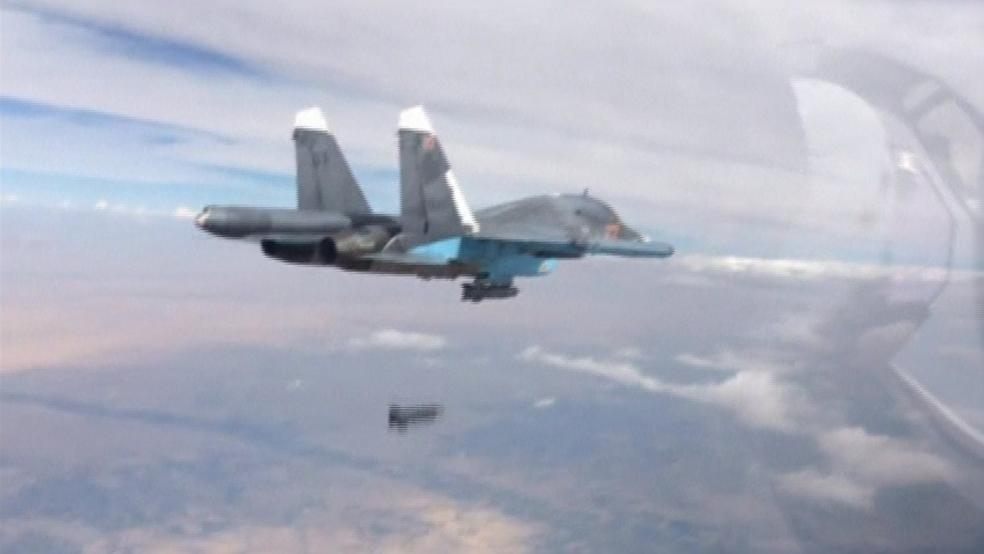The Russian media continues to be filled with images of Russian fighter jets and bombers pounding targets in Syria, and of quotes from top military officials praising the progress being made there. However, an analysis by a Washington-based think tank argues that Russian weaponry and coordination does not appear to have made a big difference in the ability of the Syrian military and its Iran-backed allies to challenge rebel groups on the battlefield.
In fact, it appears that the Kremlin is learning the same lesson the U.S. took away from its involvement in the Middle East. Air power alone won’t tip the balance in a ground war.
Related: Here’s Why Obama Is Refusing to Meet with Russia to Discuss Syria
The analysis published by the Institute for the Study of War claims a Syrian offensive launched under the cover of Russian air and artillery support last week has succeeded only in capturing a handful of villages. The ground forces, comprised of units from the Syrian Army and Iranian and Lebanese fighters, have paid a considerable cost to do so, according to multiple media reports.
ISW tends to be somewhat hawkish in its support of U.S. military involvement overseas and critical of Russian adventurism. However, the report offers a broad-based assessment based on a range of international sources.
“The Syrian regime has not gained much terrain in the first week of its large-scale ground offensive against rebel forces, despite support from intensified Russian airstrikes and hundreds of Iranian proxy reinforcements,” wrote analyst Chris Kozak. “Operations against the Syrian opposition will likely prove harder and slower than anticipated by either Russia or Iran, protracting the conflict and exacerbating extremism.”

The Russian effort so far has included not just air and artillery support, but cruise missiles launched from ships in the Caspian Sea, and a command and control center established in Baghdad to coordinate efforts in Syria.
Related: Human Rights Group Blasts Putin for Using Cluster Bombs in Syria
The Baghdad center is meant to bring together countries fighting against the terror group ISIS, which also holds some Syrian territory. However, at this point most analysts watching the conflict in Syria have concluded that Russia’s main goal is to prop up the regime of dictator Bashar al-Assad by helping his forces battle rebel groups not affiliated with ISIS.
Russia may have dedicated considerable resources to the effort, Kozak notes. “Nonetheless, the Syrian regime and its allies have thus far failed to achieve significant gains. They are fighting against rebel forces along the three primary fronts in northern Hama Province, the al-Ghab Plain, and northeastern Latakia Province, creating a front line roughly 120 kilometers long.
“Confirmed reports indicate that pro-regime fighters have seized only six villages and towns, while rebel forces repelled heavy attacks against several key positions. At the same time, regime forces suffered heavy losses in manpower and materiel in the face of heavy rebel resistance.”
Russian news reports, however, have been relentlessly upbeat, featuring footage of military aircraft taking off sorties and video images of bombs hitting their targets.
On Thursday, Russian Defense Ministry spokesman Igor Konashenkov told the media, “The militants are retreating, trying to establish new positioning areas and changing their supply system.”
There is some evidence that Russian bombing did push back some ISIS forces outside Aleppo. However, those forces had only recently taken the territory they were dislodged from and, ironically, were only able to take it after the Russians bombed the rebel groups holding it. After ISIS was driven back, the Syrian Army didn’t reclaim the positions, the rebels the Kremlin is trying to defeat did.





